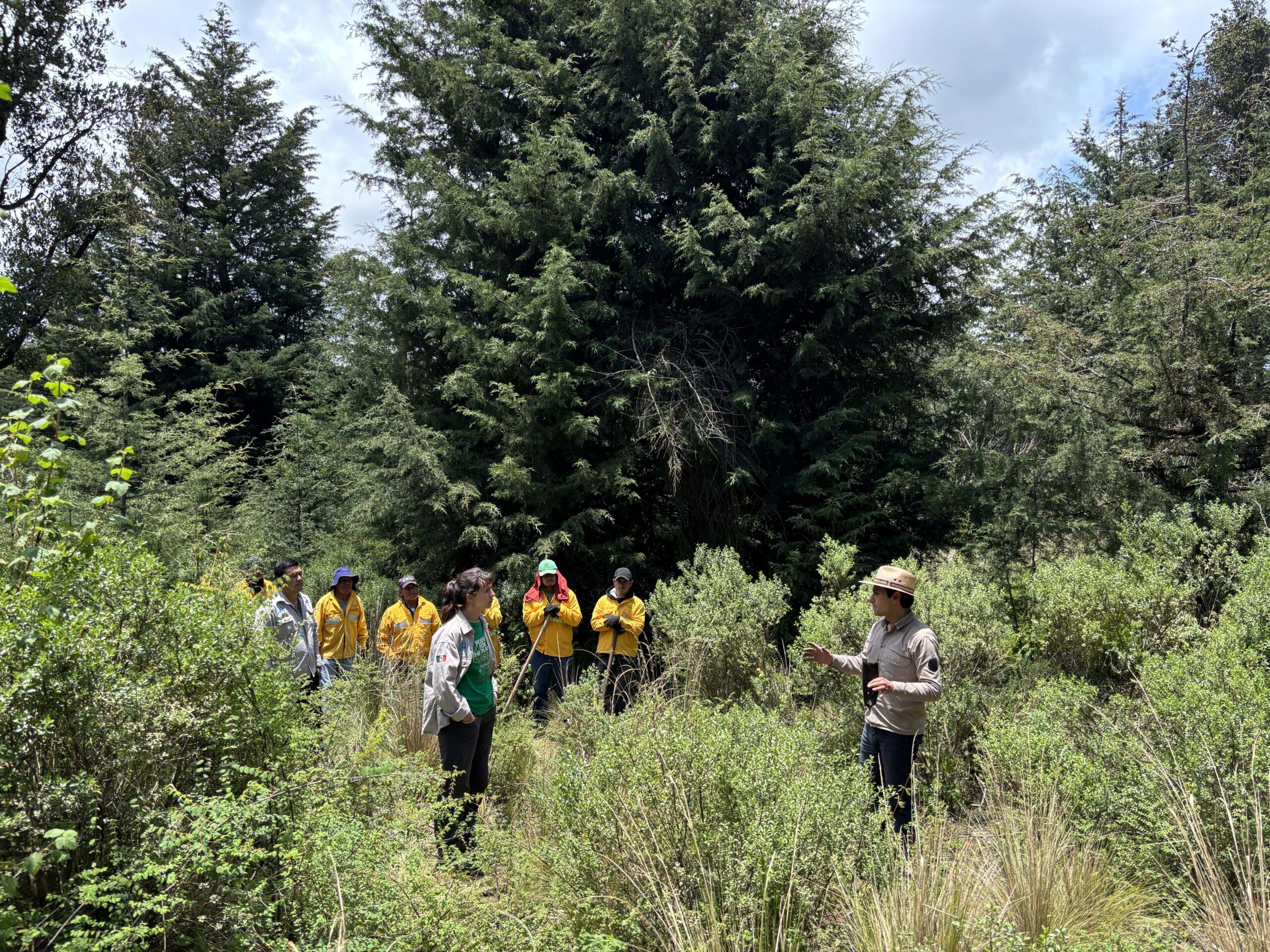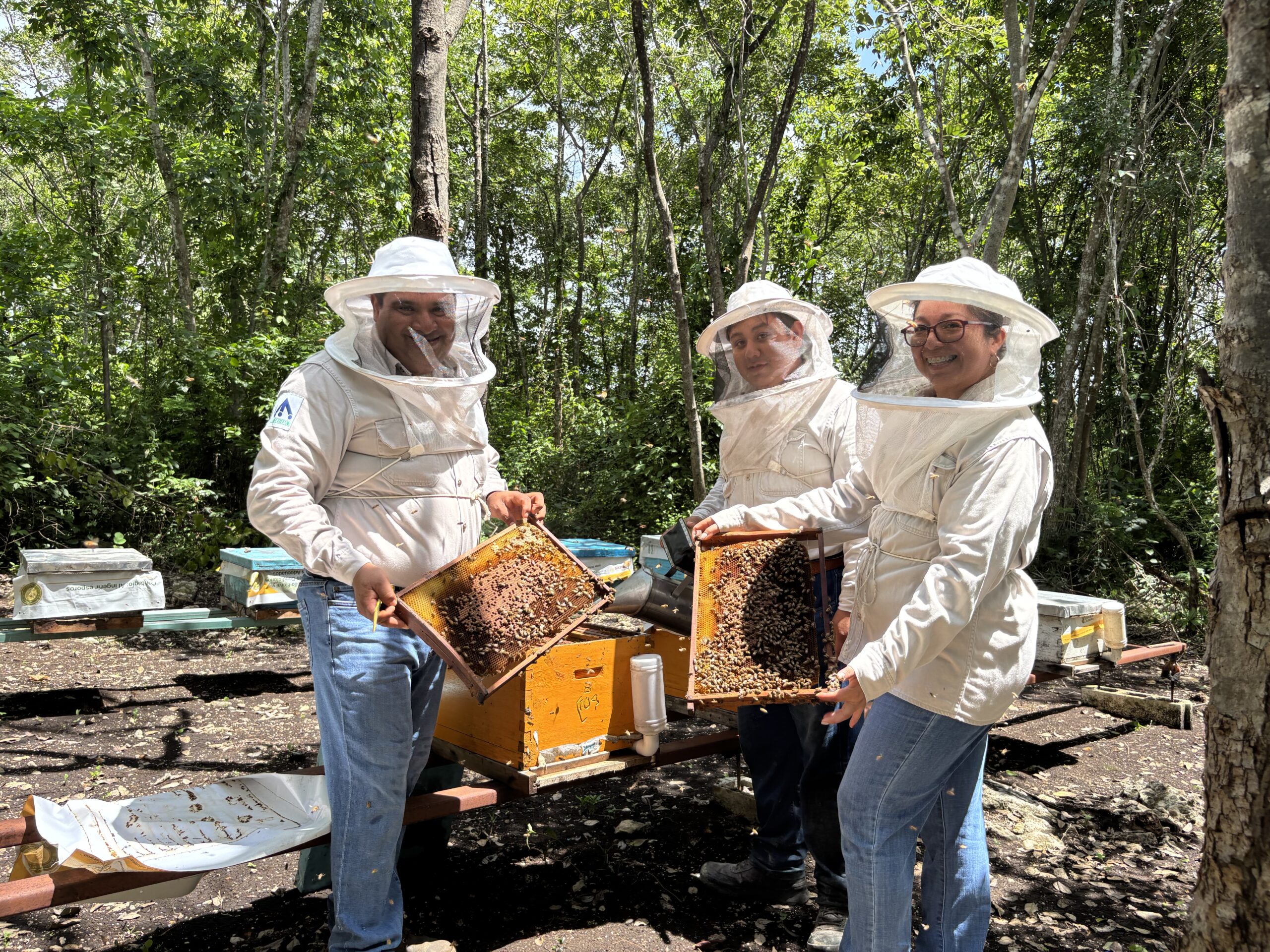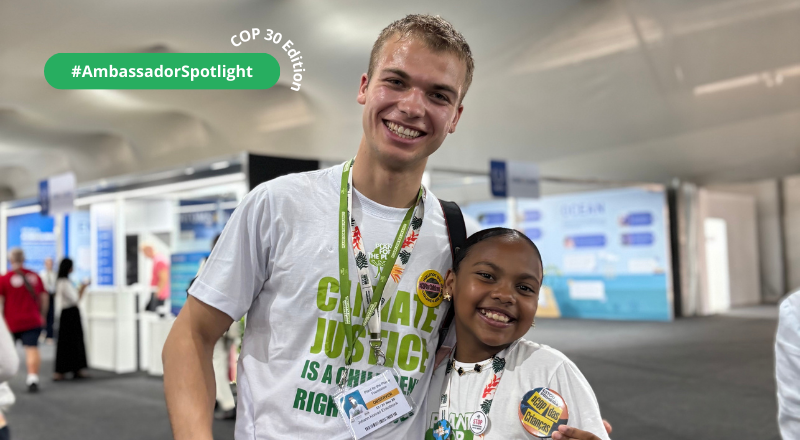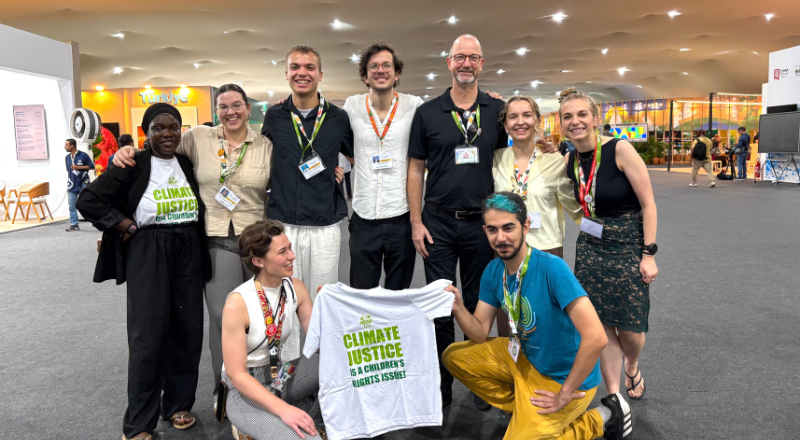
At the SB 62 climate conference in Bonn preparations were underway for the next UN Climate Change Conference, COP 30 (Conference of the Parties), which will take place in Belém, Brazil. From June 16 to 26, delegates from around the world gathered to discuss progress on international climate protection and funding for climate-related losses and damages. We were also present in Bonn with a delegation and hosted a well-attended side event on June 25 focused on the Tropical Forest Forever Facility (TFFF).
Rainforest Protection at COP 30: Will the TFFF Become a Game-Changer?
Our side event at SB 62 focused on how the TFFF could become a game-changer for rainforest protection at COP 30. The fund – comparable to a pool of money into which many contribute – faces several challenges, as Dr. Hugo Rosa, policy specialist at OroVerde, explained to the participants. These challenges include maintaining ecological integrity and ensuring the effective monitoring of this new financing model for the tropical forest.
The financing model itself is also under discussion. The TFFF is designed as an investment fund with a special structure to ensure the long-term protection of tropical rainforests. Countries that are already preserving their forests by reducing deforestation and forest degradation are to be financially rewarded. These funds can then be used by those countries for sustainable development initiatives. Countries that fail to protect their forests would not receive financial support. This initiative proposed by the Brazilian government is expected to be officially launched at COP 30.
The Future of the TFFF – Eleven Countries Already Support the Idea
Our panelists highlighted the most essential point: for the TFFF to succeed, it needs significant investment from governments. The following experts shared insights on the TFFF:
- Ambassador Liliam Chagas, Director for Climate, Ministry of Foreign Affairs, Federative Republic of Brazil
- Ing. Andrea Lucrecia Fión Góngora, Director for Climate Change, Ministry of Environment, Republic of Guatemala
- Miriam Philippe, German Ministry for Economic Cooperation and Development, Department Environmental Policy, Biodiversity, Forests and Ocean Protection
- Carlos Rittl, Director of Public Policy, Wildlife Conservation Society
So far, eleven countries have verbally expressed their support for the TFFF, including Germany, Norway, and the United Kingdom. However, concrete financial commitments are still lacking. Ambassador Chagas also pointed out that many industrialized nations have pledged to provide financial resources to developing countries to support their transition to climate-friendly development under the UNFCCC and the Paris Agreement.
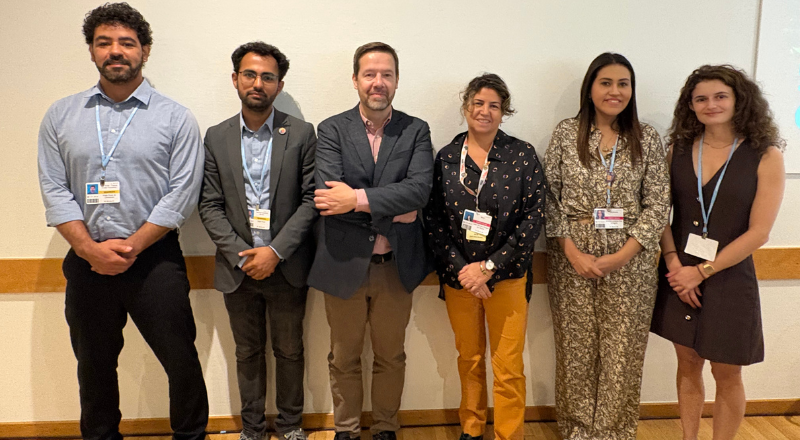
L-R: Dr. Hugo Rosa, Sagar Aryal (CTO at Plant-for-the-Planet), Carlos Rittl, Ambassador Liliam Chagas, Ing. Andrea Lucrecia Fión Góngora, and Jesse Chase-Lubitz (climate journalist at Devex and moderator of the event).
The TFFF Needs Binding Commitments – Why Are States Hesitant?
However, recent political developments tell a different story. Budget cuts in some countries and shifting priorities are placing a strain on development areas and international collaboration. As Philippe explained, the German government has also made significant cuts in this area, affecting climate protection efforts that depend on such funding.
These developments make it clear that climate finance is losing importance for many governments. Nevertheless, the panel also stressed that the TFFF is not intended to replace other climate or environmental funding mechanisms, but rather to complement existing instruments.
Since the TFFF is also linked to market mechanisms beyond investors’ direct control, similarly to any other investment, there is a residual risk of financial loss. Philippe said that this involves taxpayers’ money. According to her, involving the World Bank in the TFFF plans represents a positive step.
The TFFF’s Potential for Indigenous Peoples and Local Communities
Compared to other financing models for tropical forests, the TFFF has one particularly important component: collaboration with Indigenous peoples and local communities (IPLCs) who live in and with the rainforest. These groups play a crucial role, as Fión Góngora highlighted.
Building trust with these communities is essential, she explained, as they are key actors in protecting the rainforest, by monitoring deforestation, for example. She also stressed that the TFFF mechanism must be linked to local economic cycles to ensure that protecting the forest also provides these people with a sustainable livelihood. The current TFFF draft already stipulates that at least 20 percent of a country’s revenues from the fund must be allocated to local and Indigenous communities. The new concept note of the TFFF is expected in July and is eagerly awaited.
The Road to COP 30: Rainforest Protection Must Not Fail
The discussions at our side event clearly showed that there is significant interest in new forms of climate finance. The TFFF presents an entirely new approach to rainforest protection. However, without investment, such a fund cannot be established. At Plant-for-the-Planet, we advocate for the TFFF, which protects Indigenous interests and sanctions all forms of rainforest degradation. Not only does the TFFF support reforestation, but also the protection of existing tropical forests, which is crucial in the fight against the climate crisis. Tropical deforestation remains alarmingly high. Therefore, we call on all states supporting the TFFF to make binding commitments soon so COP 30 can mark the beginning of a new chapter in tropical rainforest protection.
We want to thank our partners Rainforest Foundation Norway, Rights and Resources, and OroVerde, through whom we were able to make the event happen.
